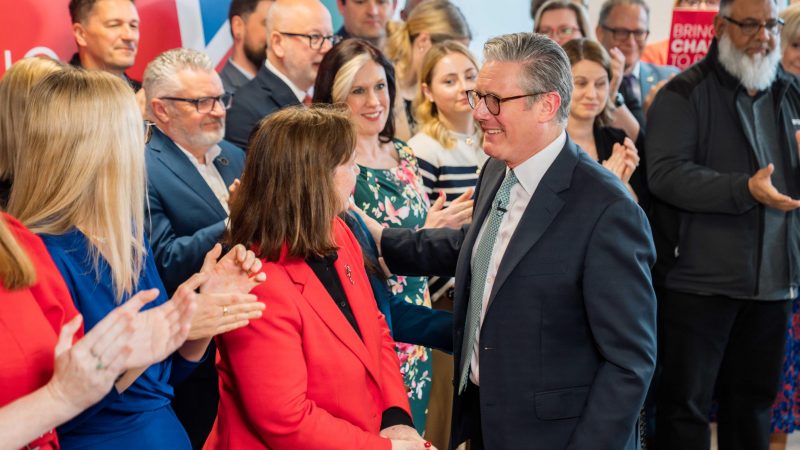
Bond markets. Freebiegate. The White House with Trump.
Tests have been aplenty for this government. But in just under a month’s time, it will face its first true electoral test, as 26 councils in England go to the polls.
Until recently, the conventional wisdom was that these elections didn’t matter much. They were last contested when Labour was at a low ebb, meaning they have fewer councillors to lose. They’re also more likely to be in traditionally-Tory shires, again weaking their symbolism for the party.
Those days now feel long ago. With the addition of a by-election in Runcorn being held on the same day, deep in Labour’s heartlands, a sense of trepidation is falling over the party. Will bad polling numbers translate into bad results? How will Reform do? Will Farage get his first council? In Doncaster or elsewhere?
An enormous blow at the locals, while certainly not terminal for Labour, would still matter. So, how can we expect the elections to go?
‘Clear sense that government is not focusing on the right issues’
It’s clear that Starmer’s acts on the world stage – handling Trump while backing Zelensky – has won plaudits among the public. As has been widely reported, his approval ratings, and Labour’s, have seen a small but significant increase in recent weeks. Yet new polling by Public First for the Independent Commission on Neighbourhoods reveals that voters remain sceptical of the government’s domestic agenda.
Our polling found that two-thirds (68%) of the public do not think the government cares much or at all about their neighbourhood, rising to 84% among Reform voters. Roughly half (47%) think the government is focusing on the wrong issues, with this rising to almost eight in ten (78%) among Reform voters.
Only 23% of the public think the government is focusing on issues that matter to them, versus 50% who disagree. Among Reform voters, just 10% think the government is focusing on issues that matter to them, with 74% disagreeing.
There is a clear sense that the government is not focusing on the right issues or places. The government has recently responded to these concerns by focusing on issues reflecting working class concerns, such as migration and cutting aid to pay for defence.
However, our poll reveals the government still has much further to go, with just one in ten voters thinking that the government is focused on working class neighbourhoods. Instead, the public think the government is focusing on rich neighbourhoods (43%) and neighbourhoods in London (41%), the two most popular responses.
‘A domestic recalibration is needed’
It’s clear that a domestic recalibration is needed. The good news is that in the wake of recent geopolitical turbulence, the tanker of government is turning. We are seeing a slow but deliberate stressing of national security and resilience, embodied by the government’s new “securing our future” strapline. Although the Prime Minister likes to deny the existence of ‘Starmerism’, there’s a clear national story emerging.
It could go something like this: if our economy is weak, it’s hard to pay for vital defence spending, as the country is realising today. If our health is weak, it’s hard to staff our armed forces, as the ruling classes discovered during the early twentieth century. If society lacks strong foundations, we won’t bounce back from crises or unexpected shocks. That was the lesson of the Covid-19 pandemic: tightly knit communities got through better than others.
Strong abroad and at home. Secured through a significant down payment: first in defence, next in our domestic resilience. This must be an agenda that focuses on working class communities and those places that are most insecure in an uncertain world.
‘Mission-critical neighbourhoods’
For the Independent Commission on Neighbourhoods, this should start with ‘mission-critical neighbourhoods’. These 613 neighbourhoods are the furthest from the government’s five missions and where policy makers’ minds should be focussed. They tend to be found in coastal communities, ex-industrial towns and the forgotten peripheries of cities. They’re often, unsurprisingly, places where Reform is stronger too.
There are plenty of people willing to develop this new agenda. The Red Wall caucus of Labour MPs is calling for greater investment in the North and Midlands. The Future of the Left project at Policy Exchange is asking the right questions and convening leading thinkers, from John Bew to Andy Haldane. Bloggers are defining a new approach to foreign policy – a new ‘realism’ – in tune with today’s era of insecurity.
Whatever the local elections end up bringing for Labour, they should lead to serious reflection. Relying on the logic that the right is divided, or that governing parties gain ground later in office, looks naïve. Who would confidently guess a ceiling on Farage’s support? I certainly wouldn’t wish to.
The old political rules – from a time before insurgent populism, economic stagnation and global fragility – no longer hold. The government must act in accordance with today’s rules, not those of a bygone era.
For more from LabourList, subscribe to our daily newsletter roundup of all things Labour – and follow us on Bluesky, WhatsApp, Threads, X or Facebook .
- SHARE: If you have anything to share that we should be looking into or publishing about this story – or any other topic involving Labour– contact us (strictly anonymously if you wish) at [email protected].
- SUBSCRIBE: Sign up to LabourList’s morning email here for the best briefing on everything Labour, every weekday morning.
- DONATE: If you value our work, please chip in a few pounds a week and become one of our supporters, helping sustain and expand our coverage.
- PARTNER: If you or your organisation might be interested in partnering with us on sponsored events or projects, email [email protected].
- ADVERTISE: If your organisation would like to advertise or run sponsored pieces on LabourList‘s daily newsletter or website, contact our exclusive ad partners Total Politics at [email protected].





More from LabourList
‘I spent years telling workers the law couldn’t help them – that has changed’
Josh Simons resigns as Cabinet Office minister amid investigation
‘After years of cuts, Labour’s local government settlement begins to put things right’